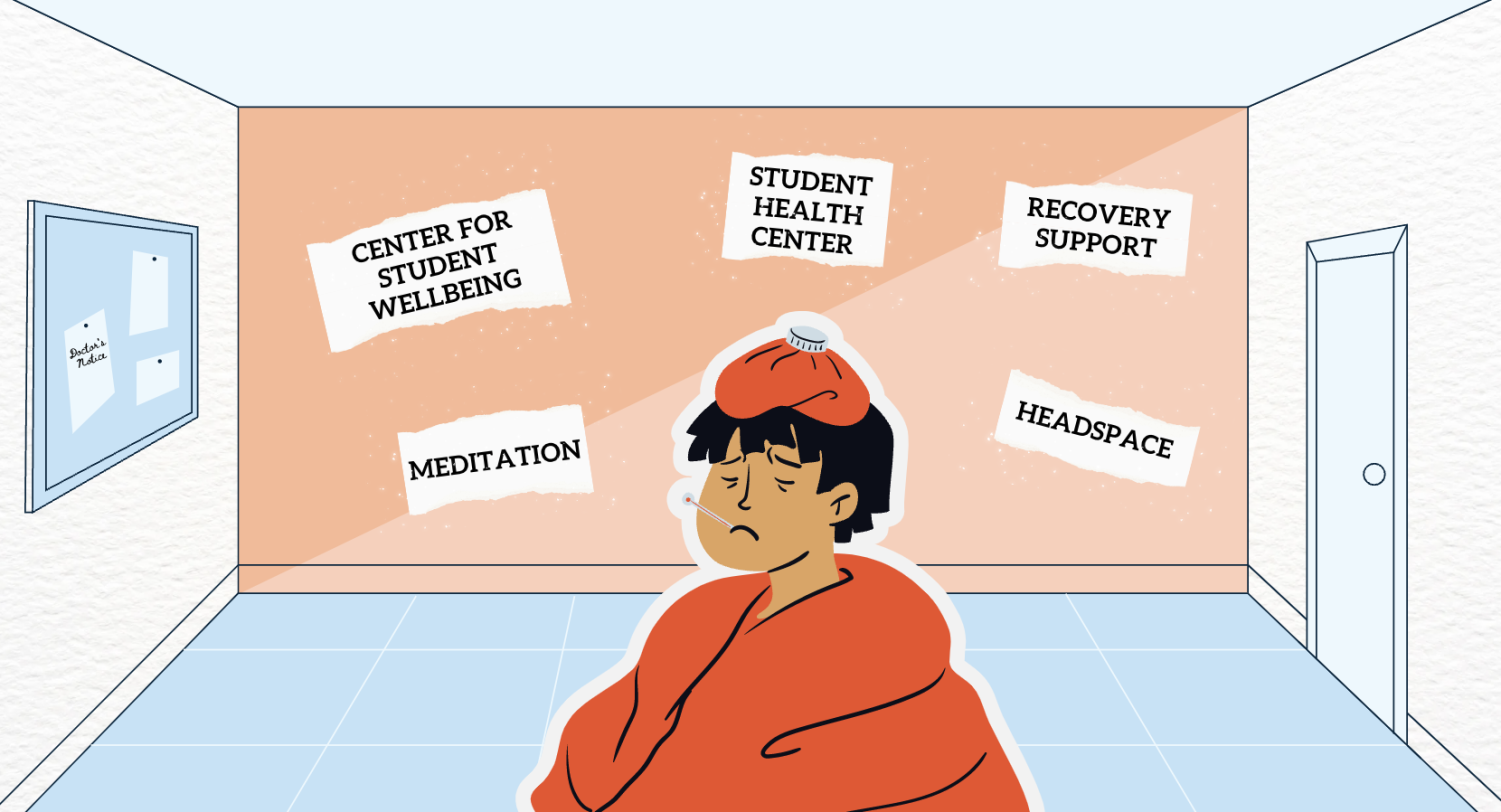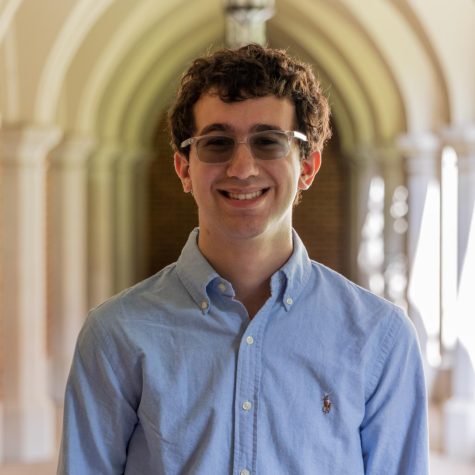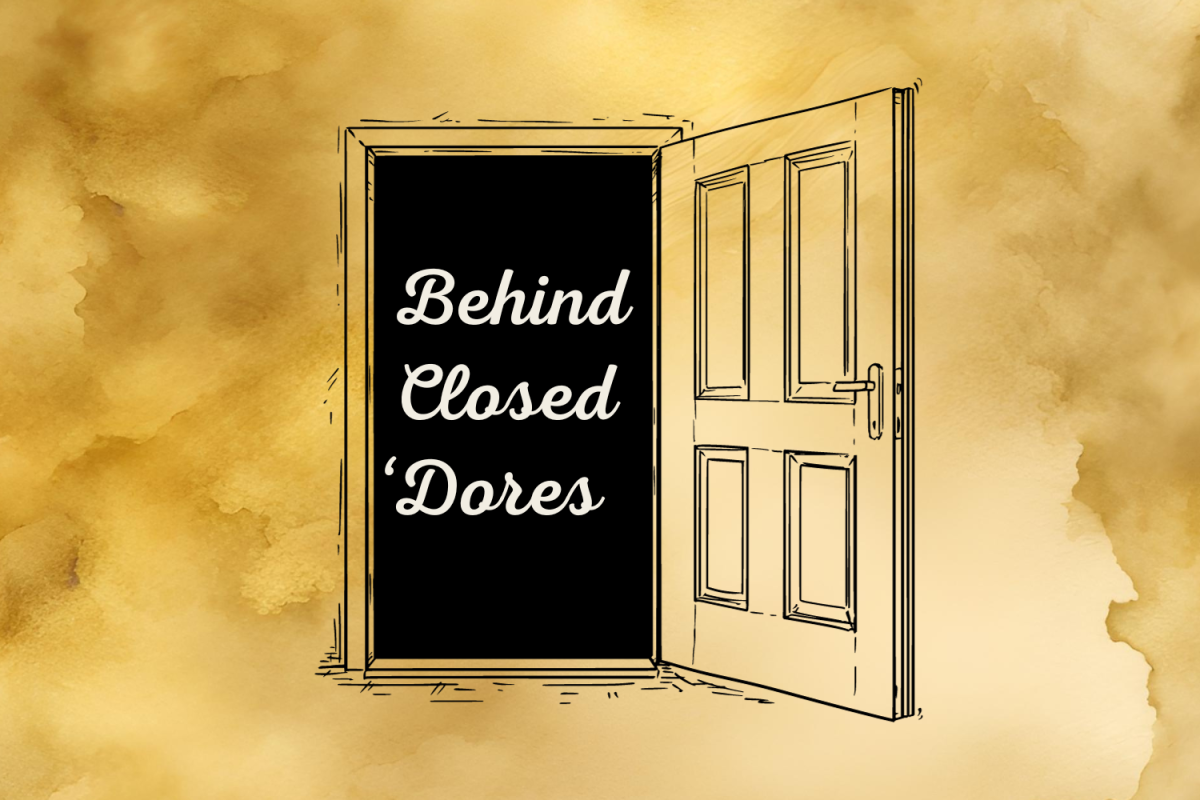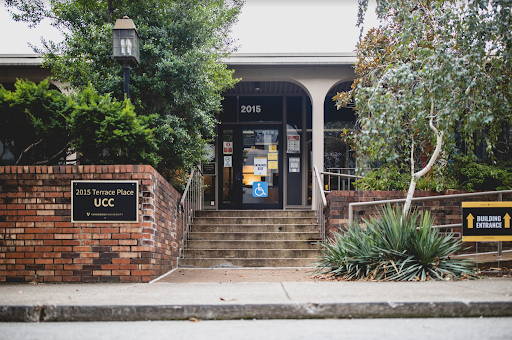A distinct whistling sound dances around the room as I write these words. It started out barely audible and is steadily growing louder, as if a train is slowly pulling into my dorm. Up and down the noise goes, interrupted only by violent hacking and ominous crackling noises. It’s an unpleasant soundscape—just ask my long-suffering roommate. But who am I to complain? After all, it’s my lungs causing the ruckus.
My first week of classes at Vanderbilt was magical; breathing in the fresh Tennessee air on my walk to Peabody felt rejuvenating, a stark contrast to the swampy atmosphere in my hometown of Silver Spring, Maryland. I had a skip in my step that everyone seemed to notice. “You always seem so happy,” a classmate of mine told me that week, something I certainly had never heard before. Just a few short days at Vanderbilt had turned me from sourpuss to sugar-sweet.
I chose to ignore my symptoms—as so many of my friends and peers here do when they are ill. Sickness comes and goes, but the Vanderbilt grind is here to stay.
Alas, this exuberance was short-lasting. Classes got harder by their second week, and all of a sudden I was drowning under a deluge of problem sets and essays. My naivete convinced me that even such a heavy workload would not affect me in any meaningful way; after all, I have never been one to spin out over assignments, nor do I hate doing work. This particular brand of neurosis is what got most Vanderbilt students here in the first place: a desire to do more, study harder and stay up later. Little did I realize that this increase in work would be a disaster for my immune system. It started out with some light sneezing. I chalked this up to seasonal allergies, something for which Nashville is notorious. Soon enough, however, I was coughing non-stop, my nose stuffed to the brim and my chest aching. Could it be COVID-19? I asked myself, but a series of CVS rapid tests proved otherwise.
What was going on?
That’s the question I should have asked next, but I didn’t. I instead chose to ignore my symptoms—as so many of my friends and peers here do when they are ill. We are constantly working, shuffling from class to job to extracurricular activity; we don’t have time to worry about silly little illnesses. Sickness comes and goes, but the Vanderbilt grind is here to stay.
Stress is known to have a litany of troubling effects on human health. From musculoskeletal problems to psychosis, it impacts every inch of our bodies from head to toe. Unsurprisingly, researchers have found that college stress is highly correlated to physical illness. None of this information is news to Vandy students, but we are skilled at pretending they do not exist. We handle stress as if it is simply a normal part of the college experience and not a serious danger to our physical health. At high-achieving schools like Vanderbilt, some of us even chase stress on purpose, boasting to our friends about how we have the most difficult schedules or how we studied until 6 a.m. last night. Worst of all, we often ignore the physical and mental manifestations of stress that could do real damage to our health. Instead of working to maintain our health and prioritize our futures, we choose to harm our bodies and risk burnout. We set ourselves up for a life full of sickness.
I didn’t even consider going to the doctor for my mystery illness. It was only another incident—an injury to my foot sustained while running to a class—that led me through the doors of the Student Health Center. Limping my way through the health center’s hallways, I was greeted by kind nurses and patient front desk workers. The nurse practitioner who examined my injury was sweet and helpful, providing me with practical tips to ease my pain and a reference to an orthopedist to further examine the injury. I walked out of the building feeling relieved, comforted and just a tad healthier. I was shocked by how great of an experience going to a doctor’s office could be.
I had worn the Vanderbilt badge of sacrifice with pride, prioritizing my performance in the classroom over my needs as a human being. Stress had not only disabled my immune system, but also my common sense.
When my respiratory symptoms came back with a vengeance a few weeks later, I promptly booked myself another health center appointment. I was diagnosed with acute bronchitis and prescribed two inhalers and various cough medicines. Bronchitis often comes after colds; had I gone to the doctor earlier, when my symptoms were milder, I probably could have avoided it altogether. Instead, I ignored my physical needs and the existence of professionals who could help me recover to do more work. I had worn the Vanderbilt badge of sacrifice with pride, prioritizing my performance in the classroom over my needs as a human being. Stress had not only disabled my immune system, but also my common sense.
Vanderbilt’s academic environment is very stressful, but it doesn’t have to be. After being diagnosed, I decided that rather than attempting to power through the illness like I usually do, I would instead take a few days to rest. My professors have been incredibly accommodating; some even took time out of their busy schedules to meet with me and catch me up on class material. Beyond professors, the university itself offers tons of helpful tools to keep students healthy. The Center for Student Wellbeing offers resources including meditation sessions, well-being workshops and recovery support services. Campus Dining offers consultations with a registered dietician to help students eat healthily. Vanderbilt even has services for mental health and trauma, including the University Counseling Center and Project Safe. For those of us who would rather access care in our own time, the school offers self-directed wellness resources, including apps and guided videos, that we can access free of charge.
I personally have found the meditation app Headspace to be helpful for both general self-reflection and as a way to take a break from the academic pressures constantly bombarding me. You don’t have to carve out an hour for a yoga session or pencil “meditation” into your already busy Google Calendar; you can use Headspace while walking to class or sitting outside eating lunch. When I first heard about Headspace, I disregarded meditation as pointless. I wish I hadn’t been so quick to judge. Having a tool that helps me destress quickly and quietly has been invaluable to me.
There are certainly things Vanderbilt’s professors and administrators could do to make college less stressful for students (less work—even a little less work? Please…?). That being said, there are also so many things students could be doing to help themselves. We are incredibly lucky to attend a school that can afford to provide us with so many destressing, health and wellness resources. Our tuition pays for it, so why not take advantage of them?
Getting sick in a stressful, fast-paced academic environment like Vanderbilt is inevitable, and it happens at top-tier universities across the nation. There is no eliminating stress from college, especially with all of the midterm exams we are faced with right now. What we should all remember, however, is that Vanderbilt is also here to help us get better—we just have to let it.










